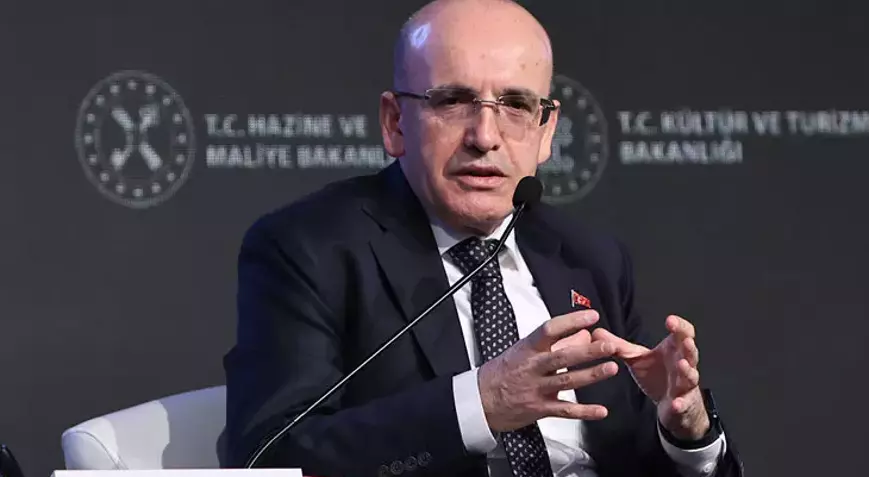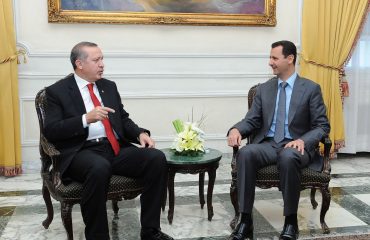

Minister of Treasury and Finance, Mehmet Şimşek, finally unveiled long-awaited austerity measures in the public sector on May 13. Had President Tayyip Erdoğan not replaced Mehmet Şimşek with his son-in-law Berat Albayrak in 2018, and embarked on implementing the “low interest reduces inflation” thesis, the bitter pill might have been averted.
Minister of Treasury and Finance, Mehmet Şimşek, finally unveiled long-awaited austerity measures in the public sector on May 13, under the watchful eye of Vice President Cevdet Yılmaz. Both underscored that these measures were meticulously crafted with the directive and approval of President Tayyip Erdoğan. Following the announcement, neither Yılmaz nor Şimşek take questions from journalists.
Had they engaged, they might have probed into the potential impact of these austerity measures on bridging the budget deficit if implemented rigorously, and which savings initiatives could significantly contribute to navigating out of the economic crisis.
They could have delved into inquiries regarding reduction in Presidential expenditures, alongside pivotal areas like official vehicle usage and extravagant building practices. It remains undisclosed whether savings from public vehicles would encompass the Presidential fleet of planes and luxury German cars. Similarly, the continuity of high salaries and additional perks for advisors, likely known solely to the President, remains uncertain despite proposed reductions in support staff.
Furthermore, the extent to which Şimşek’s disclosures align with the Presidential decree, and how they will be integrated, sparks curiosity.
Austerity Package: The Bitter Pill
This isn’t the first austerity decree witnessed during the AKP era, as both Yılmaz and Şimşek asserted that “this time will be different.” Allegedly, the foremost priority is “enhancing efficiency in the public sector,” a claim yet to be scrutinized in practice.
Writing for T24, Murat Sabuncu, alluding to Presidential expenditures, remarked, “transportation, the youth’s employment, and the public’s services that bear the brunt.” CHP leader Özgür Özel labeled it a “covert IMF program.”
According to Prof. Dr. Selva Demiralp from Koç University, while we have begun ingesting the bitter medicine, equitable burden distribution is imperative. Demiralp suggests that if the proposed austerity measures are fully enforced, they could yield benefits equivalent to 0.6 percent of the GDP. However, she emphasizes the significance of setting an example or symbolic value.
In Ekonomim newspaper, Mehmet Kaya, relying on a study by TEPAV researcher Hakan Yılmaz, outlined potential tax reforms and public procurement legislation amendments. These, coupled with requisite measures, could pave the way for savings of 1 trillion lira in the public sector and an additional income of 300 million by 2024. Such measures could potentially mitigate the budget deficit, projected to be 8 percent of the GDP, to below 6 percent.
Municipalities and the AKP Economy
Had President Tayyip Erdoğan not replaced Mehmet Şimşek with his son-in-law Berat Albayrak in 2018, and embarked on implementing the “low interest reduces inflation” thesis, the bitter pill might have been averted. Presently, critiquing Şimşek, particularly within the AKP and MHP, appears futile.
The approval of the Public Procurement Law and tax regulations in the parliament hinges on Erdogan’s explicit instructions, prompting lobbying efforts targeting the AKP group.
The measures envisage a 15 percent reduction in investments and a 10 percent cut in service procurement. Projects that are 75 percent incomplete will be suspended. The austerity program encompasses all public institutions, including municipalities. However, this entails adverse repercussions not only for government investments but also for municipal investment programs, especially those predominantly controlled by the CHP following the March 31 elections. It also affects the construction sector, regarded as the cornerstone of the AKP economy.
Contracting companies securing mega contracts under Treasury guarantees may find themselves compelled to compete internationally to stave off bankruptcy. While many small and medium-sized enterprises may struggle to weather this storm, a significant proportion may be companies that have flourished and expanded owing to their ties with the AKP.
Potential Political Implications
The latest MetroPoll survey indicates that if the government had increased retired pensions, the electorate would perceive it favorably. Retrospectively predicting outcomes proves challenging.
Nonetheless, it’s conceivable that this austerity program, alongside measures akin to the reforms pledged by Cevdet Yılmaz and Mehmet Şimşek, such as amendments to public procurement laws, rectification of tax exemptions, stringent tax audits, and curbing informal economy practices, could marginally dent the AKP’s political standing if effectively implemented.
In such a scenario, Erdogan’s primary concern would be staving off electoral contests prior to 2028.
However, Erdogan’s ambivalence regarding electoral matters might be encapsulated in his insistence on constitutional amendments.
The prospect of a constitutional amendment referendum could usher in political rivalries and exacerbate gaps in the Medium-Term Program designed to navigate the economic crisis. Achieving the necessary 400 votes within the parliament seems contingent on collaboration with the CHP and concessions from the MHP regarding the presidential system, a non-negotiable red line for them.
In political parlance, the commencement of ingesting the bitter medicine of the austerity program signifies intensified bargaining and debates within the political arena.

